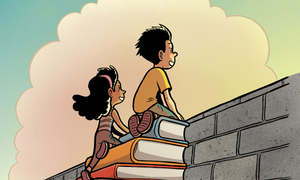“But nobody here listens to me,” Saul lamented as he tried to explain why he was in my office yet again this week. “I don’t know why I even bother to come here.” His refrain is a familiar one in my large, suburban high school. I have a feeling it’s a familiar one in high schools across the country. Our kids are crying out to be heard, and unfortunately, those cries often result in disciplinary referrals.

